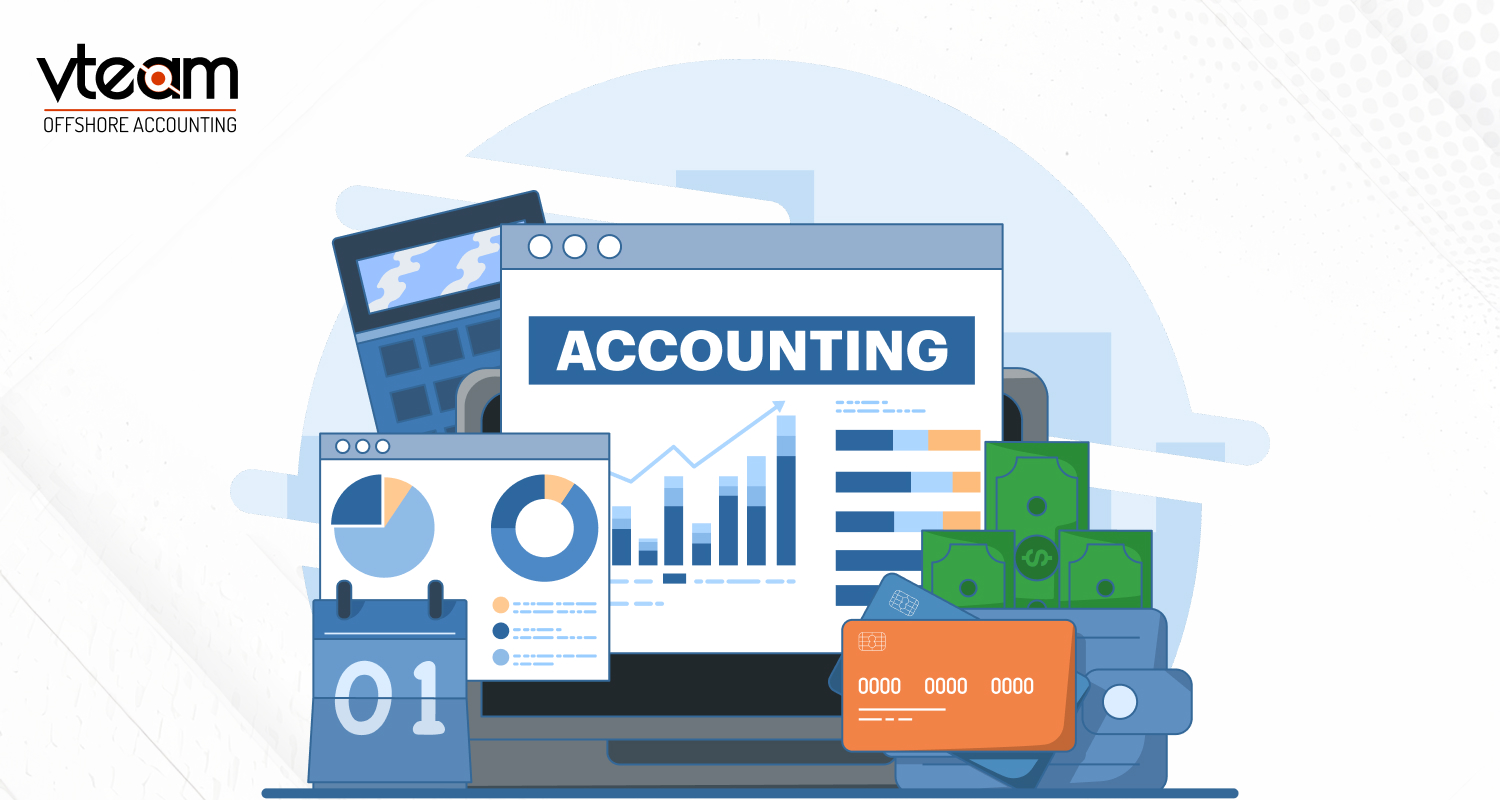In the world of business, maintaining accurate financial records is not just important—it’s essential. Whether you’re a small business owner or part of a larger organization, effective bookkeeping is the foundation of sound financial management. But managing books isn’t as simple as keeping track of income and expenses. It requires a combination of skills, tools, and strategies to ensure that your business’s financial health is on track.
For bookkeepers, having the right financial toolkit is crucial for success. A well-equipped toolkit not only ensures accurate and compliant bookkeeping but also helps unlock valuable insights that drive smarter decision-making. From mastering software tools to implementing time-tested strategies, the right approach to bookkeeping can elevate your financial mastery.
In this blog, we’ll explore the must-have strategies for building a robust accounting toolkit that will help bookkeepers at every level improve efficiency, accuracy, and overall financial management. We’ll also dive into real market trends and stats to illustrate how businesses are evolving their bookkeeping practices for success in 2024 and beyond.
Essential Components of a Bookkeeper’s Toolkit
A successful bookkeeper’s toolkit goes beyond basic software. To truly master financial management, you need a combination of strategies, techniques, and technology to streamline workflows, ensure accuracy, and help your business grow. Let’s break down the must-have components that every bookkeeper should include in their toolkit:
1. Cloud-Based Accounting Software
The cornerstone of any modern accounting or bookkeeping practice is reliable, cloud-based software. Gone are the days when businesses had to rely on outdated spreadsheets or disconnected systems to manage their financial data. Today’s accounting software is intuitive, integrated, and accessible from anywhere.
Popular Accounting Software Options:
- QuickBooks Online: A widely-used tool that offers everything from invoicing and expense tracking to financial reporting and tax filing.
- Xero: Known for its user-friendly interface and powerful cloud features, making it a great option for small businesses.
- Wave Accounting: A free alternative that offers accounting services and basic financial management tools.
Market Trend: According to a 2023 Global Market Insights report, the global cloud accounting market size was valued at USD 6.5 billion in 2022 and is expected to grow at a compound annual growth rate (CAGR) of 16.5% from 2023 to 2032. Cloud-based solutions are now indispensable in modern bookkeeping, offering real-time data access and streamlined workflows.
How this fits in your toolkit: Cloud-based software ensures that financial records are accurate, up-to-date, and easily accessible. By leveraging real-time financial data, you can make more informed decisions, spot trends early, and improve communication across your business.
Also Read: Bookkeeping Strategies for Seasonal Business Success
2. Automation and Artificial Intelligence (AI) Tools
Automation and AI are transforming the way businesses approach bookkeeping. Repetitive tasks, such as data entry, invoice generation, and bank reconciliation, can be automated using AI-powered tools, freeing up time for more strategic financial analysis.
Examples of Automation Tools:
- Botkeeper: An AI-powered platform that automates bookkeeping tasks, such as transaction categorization, bill pay, and bank reconciliation.
- Expensify: A tool that automates expense reporting, allowing employees to submit receipts and track business expenses on the go.
Market Trend: According to a 2022 PwC report, 40% of accounting tasks are expected to be automated by 2025, streamlining workflows and enhancing the accuracy of financial records. This shift toward automation is a growing trend as businesses aim to reduce human error and improve efficiency.
How this fits in your toolkit: AI and automation are powerful allies in any bookkeeper’s toolkit. These tools not only speed up routine tasks but also enhance accuracy, reducing the risk of costly mistakes. Automation tools help ensure that your financial data is always accurate, up-to-date, and consistent.
3. Data Analytics and Financial Reporting Tools
Data-driven insights are critical for understanding the financial health of a business. Advanced analytics can provide visibility into financial trends, cash flow management, and profitability, empowering businesses to make data-backed decisions.
Examples of Financial Analytics Tools:
- Fathom: A financial analysis and management tool that integrates with accounting software to provide deep insights into financial performance.
- Spotlight Reporting: A tool that provides advanced reporting, budgeting, and forecasting capabilities for businesses of all sizes.
Market Trend: A 2023 Statista report indicates that 45% of small businesses are now using data analytics to improve decision-making and financial forecasting. This reflects a significant shift in the industry as more businesses realize the power of data to drive growth and optimize financial performance.
How this fits in your toolkit: By incorporating data analytics tools into your financial toolkit, you can unlock valuable insights that guide business strategy. These tools help you identify patterns, manage cash flow, optimize expenses, and spot growth opportunities, which ultimately leads to better financial outcomes.
4. Tax Preparation and Compliance Tools
Staying on top of tax regulations is a critical responsibility for bookkeepers, as failure to comply can lead to penalties and legal trouble. Fortunately, there are several tools available to help bookkeepers stay up-to-date with tax regulations and ensure compliance.
Examples of Tax Tools:
- TaxSlayer Pro: An affordable tax preparation software that provides tax forms, e-filing, and compliance tracking.
- Avalara: A tool that automates sales tax compliance, helping businesses navigate tax calculations and filings.
Market Trend: As of 2023, over 80% of businesses (according to IBISWorld) rely on automated tax tools to stay compliant with local and international tax laws. This reflects an increasing need for businesses to leverage technology for compliance in an ever-changing regulatory environment.
How this fits in your toolkit: Tax preparation and compliance tools allow bookkeepers to minimize tax risks and reduce the time spent on manual calculations. These tools automatically update with new tax rules and ensure your business remains compliant, making tax season less stressful and more accurate.
Also Read: CPA Firms Tips : Bookkeeping Best Practices for Retail Businesses
5. Document Management and Cloud Storage
In bookkeeping, keeping track of receipts, invoices, and other important financial documents is essential. Cloud storage and document management systems allow bookkeepers to store and organize financial documents securely, making them easily accessible when needed.
Examples of Document Management Tools:
- Dropbox: A popular cloud storage solution that allows for secure document sharing and access from anywhere.
- Receipt Bank: A tool that allows businesses to capture receipts and invoices digitally, organizing them for easy access and accounting.
Market Trend: A 2023 survey by TechRepublic found that 72% of businesses are using cloud storage solutions to manage their financial documents, reflecting a clear trend toward digital document management in modern bookkeeping practices.
How this fits in your toolkit: Document management tools help bookkeepers keep important records organized and accessible. These systems reduce the risk of lost documents, enhance data security, and save valuable time when retrieving information.
Key Strategies for Financial Mastery in Bookkeeping
Having the right tools is only one part of achieving financial mastery. It’s equally important to implement the right strategies to manage your finances effectively.
1. Regular Reconciliation and Cash Flow Monitoring
A key strategy for mastering bookkeeping is consistent and regular reconciliation. This ensures that your financial data is always accurate and up-to-date. Monitoring cash flow allows you to spot potential issues before they become problems.
2. Automated Reporting for Real-Time Insights
Automating your financial reporting can provide you with real-time insights into your business’s performance. This enables you to track key performance indicators (KPIs) and make data-backed decisions quickly.
3. Strategic Tax Planning
Effective tax planning can save businesses significant amounts of money. Work with a professional accountant to ensure that your tax strategy is optimized and compliant, helping you avoid penalties while maximizing deductions.
Conclusion:
Mastering bookkeeping and financial management requires more than just accurate data entry—it demands the right tools, strategies, and a proactive approach to financial planning. By utilizing the essential components of a financial toolkit, such as cloud-based software, automation tools, data analytics, and compliance solutions, bookkeepers can ensure their businesses or clients are operating at peak financial efficiency.
As the accounting industry continues to evolve with new technologies, having the right accounting services and strategies in place will make all the difference. Whether you’re an entrepreneur managing your books or a seasoned accountant looking to optimize your workflow, integrating these tools and strategies into your toolkit will help you achieve financial mastery.
Ready to take your financial management to the next level? If you’re looking to streamline your bookkeeping processes and gain financial mastery, contact us today to learn more about how our accounting services can help. Let’s build the perfect financial toolkit for your business and set you up for long-term success.



